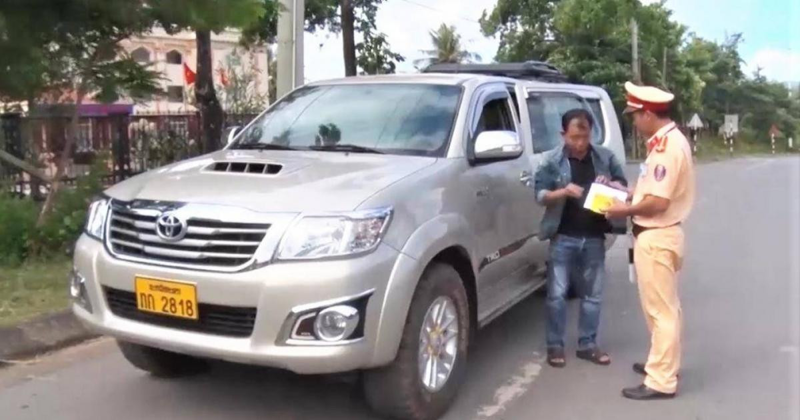Vietnam has relaxed regulations on vehicles registered outside of the country, aiming to make the country more accessible to foreign tourists arriving by car or motorcycle.
The move, which takes effect on May 1st, is expected to provide a boost to the growing tourism industry and make it easier for neighboring countries' citizens to visit.
The new rules are laid out in Decree No. 30/2024/ND-CP, issued by the government in March. Previously, foreigners faced significant hurdles if they wished to drive their own vehicles in Vietnam. Now, the process will be streamlined through coordination with Vietnamese international tour operators.
Requirements and Restrictions
Under the new regulations, foreign visitors must work with tour operators to obtain approval from the Ministry of Public Security. They will need to present valid vehicle registration and licensing documents, as well as safety and environmental inspection certificates.
Right-hand drive vehicles, less common in Vietnam, will face additional scrutiny. Drivers of these vehicles must secure a diplomatic note from an embassy, consulate, or international organization present in Vietnam. The note must explain why the vehicle needs to be on Vietnamese roads.
The maximum time a foreign vehicle can remain in the country is 45 days, with a possible 10-day extension granted in unforeseen circumstances. Foreign drivers will also need to present their passports, visas (if applicable), and valid driver's licenses from their home countries.
Balancing Tourism and Safety
The move to simplify the process for foreign-registered vehicles in Vietnam highlights the government's goal of attracting more tourists and increasing tourism revenue. It could prove especially enticing to visitors from neighboring Laos, Cambodia, and China who might prefer the familiarity of their own vehicles.
However, Vietnam also places a priority on road safety. Regulations like the limitation on how long a foreign-registered car can remain in Vietnam, along with licensing and vehicle safety requirements, demonstrate the government's determination to mitigate potential traffic risks from unfamiliar drivers or vehicles that may not meet local standards.
Potential Challenges
Even with the changes, experts note that some challenges remain. Foreign drivers will need to quickly adapt to traffic patterns and road conditions that may be significantly different from what they are accustomed to at home. The language barrier could also pose problems in the case of accidents or traffic stops.
Vietnamese tour operators designated to handle foreign vehicles and drivers will shoulder increased responsibilities. They must ensure that their international clients adhere to all regulations and traffic laws.
Overall, the new regulations represent a significant step toward making Vietnam a more convenient destination for international tourism via automobiles and motorcycles. While potential challenges remain, the move demonstrates the government's willingness to adapt in order to reap the potential economic rewards of greater tourism.









 Google translate
Google translate